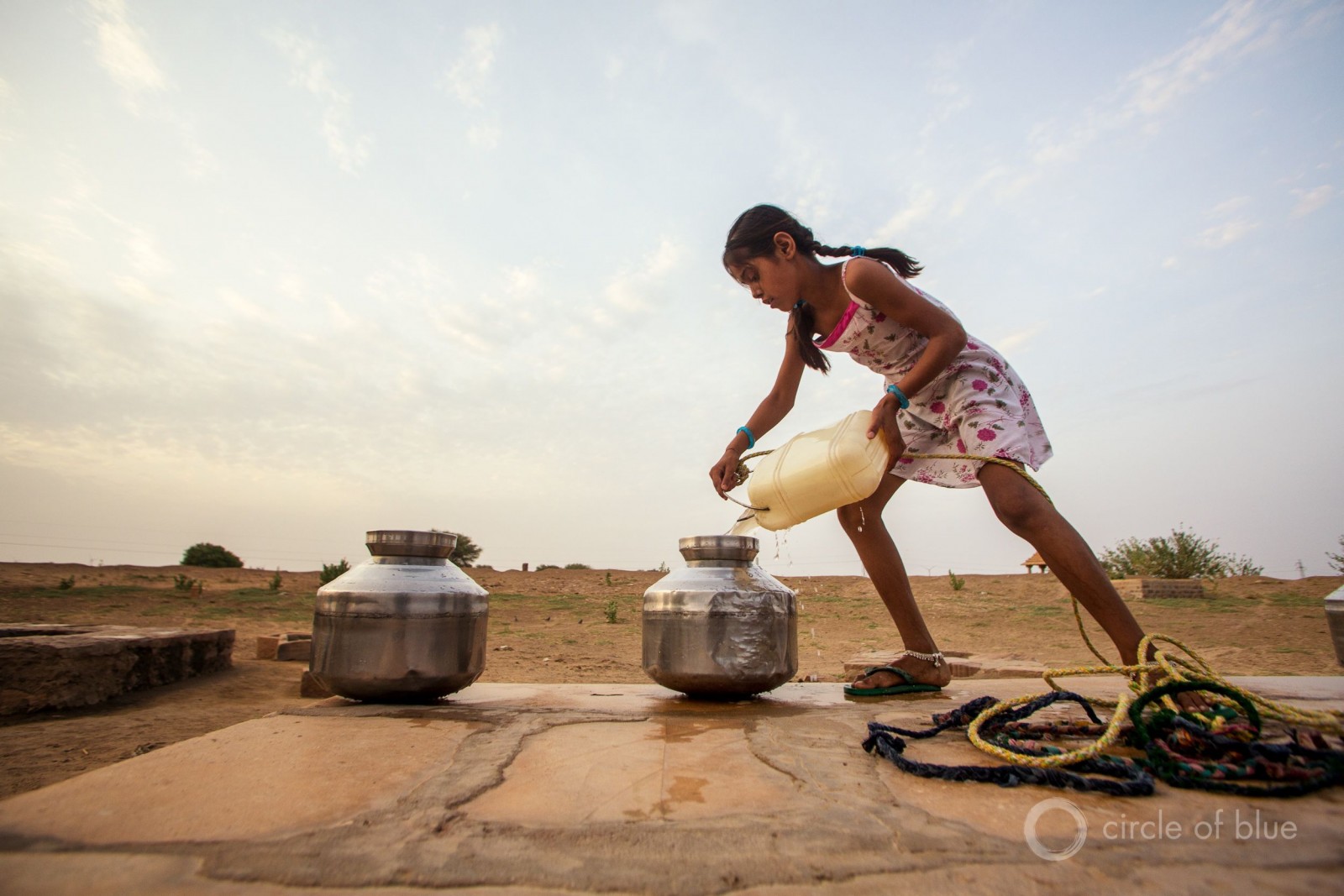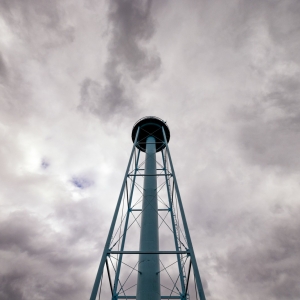Climate change and mismanagement sowed the seeds of a cholera outbreak.

A child collects drinking water in Rajasthan, India in 2016. Photo © J. Carl Ganter / Circle of Blue
By Laura Gersony, Circle of Blue — May 23, 2022
South Asia is not only baking in a record-setting heat wave. Entering the third month of extreme temperatures, people in Pakistan are confronting yet another calamity linked to an unforgiving climate: a deadly cholera outbreak.
The water-borne disease took root a month ago in the remote mountain town of Pir Koh. Water shortages forced residents to turn to cholera-contaminated ponds for drinking water, health officials say. Over 2,000 people have been infected, and at least six died, including three young children.
Residents of Pir Koh staged several protests last week, demanding that the government declare a national emergency and fix the town’s ailing infrastructure. “We have no other option but to drink contaminated water from the ponds along with the animals,” one resident told a local news outlet. Pakistan Prime Minister Shehbaz Sharif mobilized the military to distribute water tanks and set up medical camps across the affected province of Baluchistan.
The ongoing heat wave, which experts say “tests the limits of human survivability,” is the immediate cause of the outbreak. Temperatures in several countries are smashing records, in some places surpassing 50 degrees Celsius (122 degrees Fahrenheit). Residents of notoriously polluted New Delhi, where half of the population lacks access to air conditioning, describe soaking in contaminated waters to stay cool.
The infernal temperatures marked the final straw for Pir Koh’s already strained water systems. The village relies on an aging pipeline which officials say has not been adequately maintained. Water is unreliable and unaffordable in many regions of Pakistan due to mismanagement and scarcity. Many remote areas depend on pipes built by unregulated “water mafias” for access to drinking water.
Extreme weather events make these shaky water systems more prone to failure. Such events are becoming more common as Earth’s atmosphere continues to warm. Scientists reckon that climate change has made the intensity of the South Asia heat wave one hundred times more likely to occur.
Pre-monsoon heat is not unusual for the region, but the early onset of current conditions is virtually unprecedented. Instead of May or June, the heat arrived in March and lasted almost uninterrupted in the intervening weeks. Cooling monsoon rains will moderate temperatures, but not for another month.
Sherry Rehman, Pakistan’s climate change minister, said in a May 16 press conference that the country is among the most water-stressed nations in the world, and one of the 10 most vulnerable to the impacts of climate change. Rehman urged political leaders to act on the issue, advocating for technology upgrades, ecosystem restoration in the Indus River Valley, and enforcing a 1991 accord that governs the distribution of water between Pakistan’s provinces.
“Water stress is a very real danger for Pakistan,” Rehman tweeted last week. “It needs immediate action to prevent crop, livestock losses. 90 % of our [agriculture] depends on the Indus. No switch can be pulled overnight.”
Laura Gersony covers water policy, infrastructure, and energy for Circle of Blue. She also writes FRESH, Circle of Blue’s biweekly digest of Great Lakes policy news, and HotSpots H2O, a monthly column about the regions and populations most at-risk for water-related hazards and conflict. She is an Environmental Studies and Political Science major at the University of Chicago and an avid Lake Michigan swimmer.





